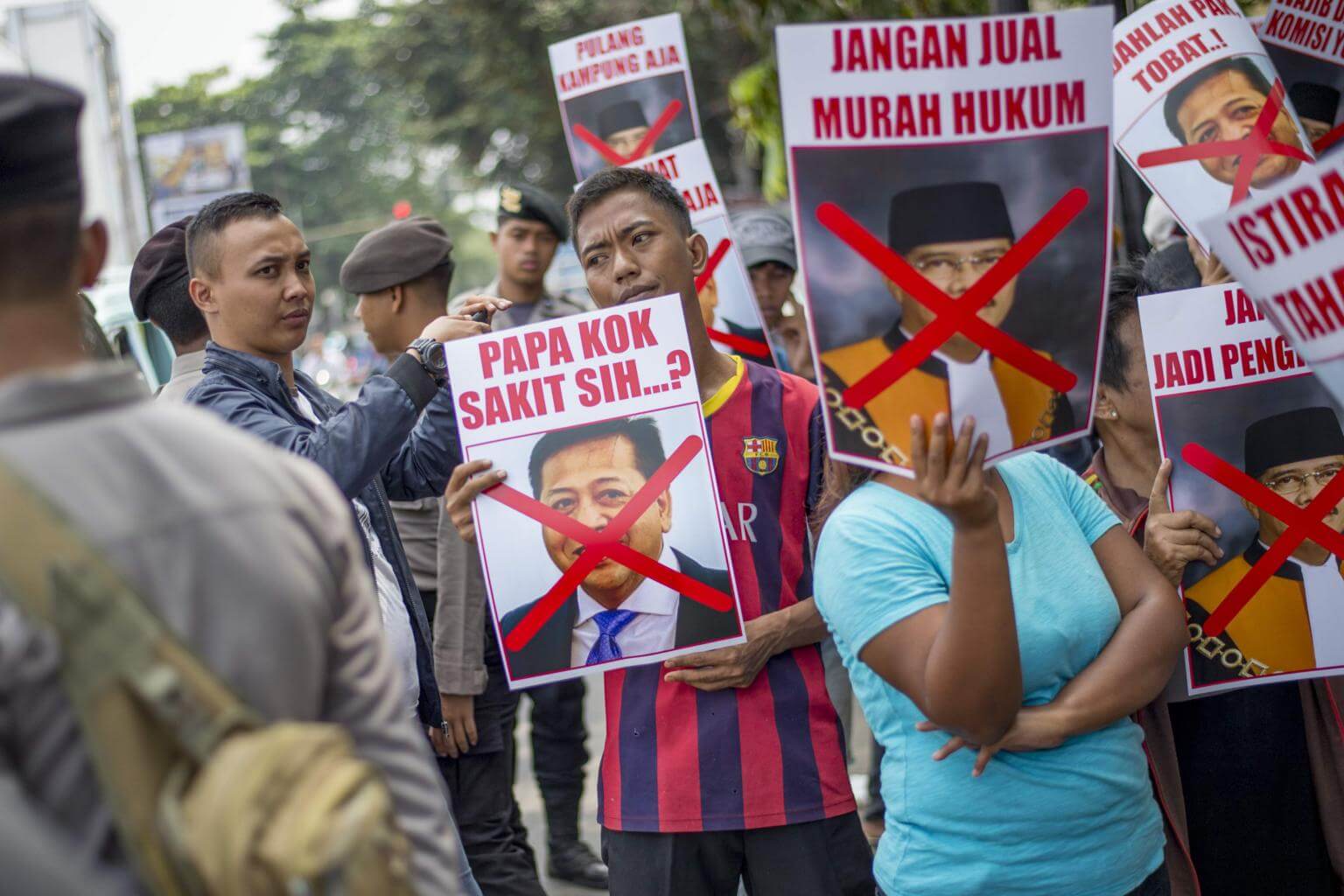Indonesia's decentralisation and corruption: The Jakarta Post
In its editorial on Sept 25, the paper says growing corruption in the country is ruining the noble aims of regional autonomy and eroding trust in democracy.
Sign up now: Get insights on Asia's fast-moving developments

A group of demonstrators hold photographs of house speaker Setya Novanto during a rally in front of the South Jakarta court on Sept 12, 2017.
PHOTO: AFP
Follow topic:
JAKARTA (THE JAKARTA POST/ASIA NEWS NETWORK) - Statistics reveal an ugly fact about the country's much-vaunted decentralisation that began nearly 20 years ago. As the number of autonomous regions has climbed to 546, Home Ministry records show 343 regents/mayors and 18 governors have been investigated for corruption within that period.
Unsurprisingly, many quip that regional autonomy, one of the hallmarks of reformasi, has only "decentralised" corruption on account of the transfer of authorities from Jakarta to local governments.
The acceleration of public services and improvement of people's welfare as the end goals of regional autonomy is not necessarily occurring; in many cases the opposite - as evident in the worsening Human Development Index - has typified the formation of new autonomous regions.
Not only does corruption stand between regional autonomy and its noble aims but it also erodes public trust in the hard-won democracy. Declining voter turnout in the last two simultaneous local elections may indicate a loss of confidence in democracy.
Direct elections of regional heads was introduced in 2005 to enhance the quality of democracy through wider public participation. The new regional election regime also allows independent candidates to run for office to reduce the hegemony of political parties, which many have blamed for the marauding corruption in the Reform Era.
As we have seen, however, corruption remains rampantly practiced in regions regardless of the tightened supervision, including by the Corruption Eradication Commission (KPK). Over the last 10 days alone, the KPK has arrested three regional heads for allegedly accepting bribes.
Cilegon Mayor Iman Ariyadi, Batu Mayor Eddy Rumpoko and Batubara Regent OK Arya Zulkarnain, who were arrested on Sept 22, Sept 19 and Sept 14, respectively, could have played a role model for other regional leaders and those who wish to contest local elections. They won two consecutive terms on account of their unrivaled popularity and solid support from political parties and people in the grass roots.
A survey conducted by the KPK participated by 270 candidates who lost in regional elections in 2015 found that among other motives of corruption were to recover political investment or pay debts to certain parties that sponsored their nomination. Deputy KPK director of prevention Pahala Nainggolan said some of the interviewees admitted to having promised to grant government projects, mining concessions and strategic posts in the bureaucracy to their supporters if they won.
Their promises have never materialised, but the KPK is aware that elected regional heads might offer the same pledges. That's why the KPK has from the beginning closely monitored regional leaders. Now that state budget transfer to regions has far increased, the KPK has intensified its oversight of regional governments, either through prevention in the form of good governance campaigns or enforcement of the Corruption Law.
As people in 151 regencies, 39 municipalities and 17 provinces are bracing for the third simultaneous regional elections next year, we hope the KPK's law enforcement measures provide enough deterrence against those aspiring for regional head positions.
The Jakarta Post is a member of The Straits Times media partner Asia News Network, an alliance of 23 news media organisations.

